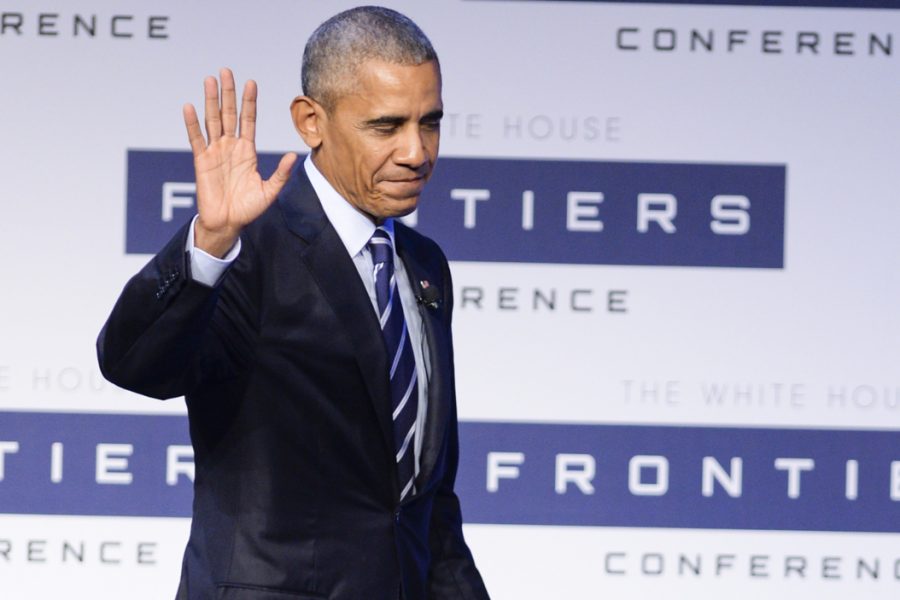I was probably 11 or 12 the first time I heard about Barack Obama.
“Gilmore Girls” ended with Rory leaving Stars Hollow, Connecticut, to cover the primary bid of the charismatic senator from Illinois. He was a boyishly handsome, big-eared law professor who used eloquent, moving language when he spoke.
America was in the throes of the Bush Administration, waging never-ending wars and mired in economic disaster. Obama’s message revolved around the audacity of hope — hope that in the face of racism and national neglect a biracial community organizer could win the White House and extend economic well-being and personal dignity to a far greater number of Americans than ever before.
Now on the eve of his departure from office, I cannot help but look at my own adolescence in the terms of the seismic changes Obama ushered into American society. His first election and the joy that came with it is also connected in my memory with the passage of Proposition 8 in California in 2008, a ballot proposition that made same-sex marriage illegal in the state, and the gradual awareness of my own sexuality that came with the onset of puberty.
Like most gay Catholic schoolboys, my early teenage years were not easy. As my classmates and I developed and matriculated to high school, I felt increasingly alienated from my childhood friends, who were all boys. Talkative and rambunctious by nature, I became quiet and introverted for fear of revealing my “girly,” high-pitched voice, throwing myself into my studies to compensate for the shame of social isolation.
Through the changes in my life, Obama was always present. On the airwaves of NPR, on the front page of the New York Times, his grace and message of tolerance became a constant element in my life. I will never forget the day he lifted the ban on LGBTQ+ people serving openly in the military, affirming that “we are not a nation which says ‘don’t ask don’t tell,’ we are a nation that says out of many, we are one.” He was a consistent reminder that things would get better, for me and boys like me all over America, affirming that the moral arc of the universe does in fact bend toward justice.
When I was 16, my best friend’s mom forbid him from going to the beach with my family because she had heard I was gay. I was upset and embarrassed, but I also knew that her reaction was nothing more than a reflection of her limited world view — besides me, there was not a single openly gay student at our school.
But our world was changing. Later that year, Obama became the first sitting president to call for marriage equality nationwide — permanently granting the LGBTQ+ community a home in the big tent of the Democratic Party. In tying his own political destiny with the gay rights movement so unapologetically and bravely — this was an election year — he both guaranteed our eventual victory and cemented his own legacy as a defining pro-gay president.
Three years later when the Supreme Court declared marriage equality the law, thanks in no small part to the two progressive female justices Obama appointed, it almost seemed anticlimactic. I was a college sophomore that year, out to the world and interning in my senator’s constituent office. It hit home that we were entering a new chapter in our history, and the country in which I was entering adulthood was different from the country in which I was born.
We finally had gay marriage and a black man in the Oval Office. I realized that these things were perhaps not so unrelated. The historic breakthrough of the first black president shifted our perceptions about ourselves, our worth and our country. We dream bigger because of Obama.
What once seemed far-fetched to my adolescent self — having a fulfilled life as an openly gay man, for example — was now proven possible. As I prepare to graduate college, eager to continue the work of the progressive movement, I would be remiss to not thank Obama for what he did for me and gay people like me across the country.
So don’t weep because his time in the White House is over or because he was not able to realize every dream we once hoped for. Because some day, someone will.


